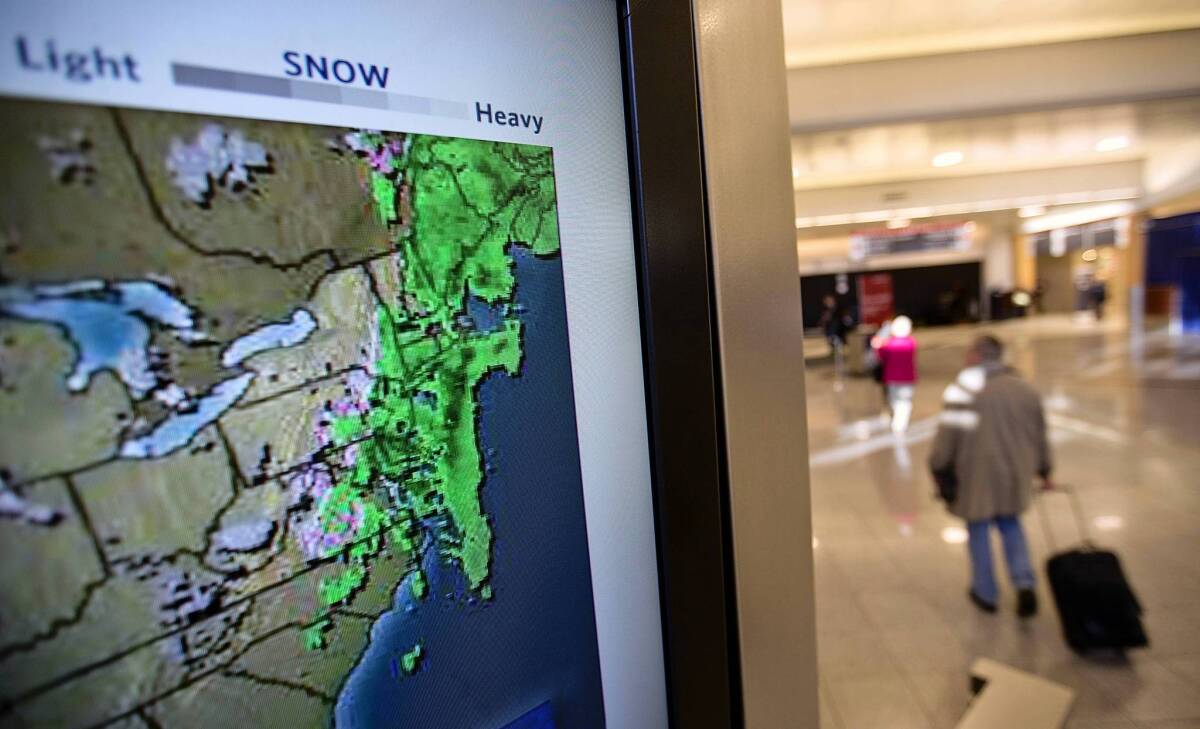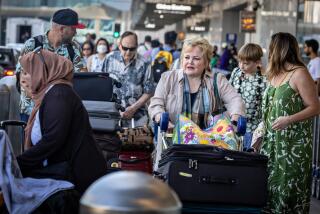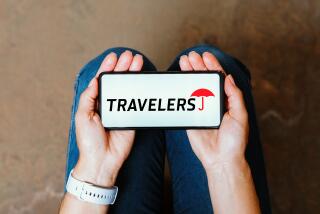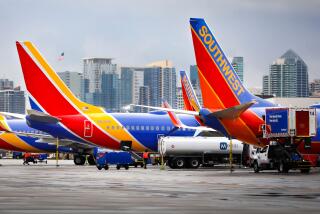Travel insurance offers ‘very little real value,’ consumer group says

After a nasty storm ripped through the East Coast on the busiest travel day of the year, you might think that buying travel insurance for holiday travel would be a no-brainer.
Not so much. The 114-year-old National Consumers League concluded recently that travel insurance is usually a bad deal because most policies are riddled with exceptions that allow insurance companies to reject claims for payoffs.
Most insurance companies won’t disclose their track record for paying out claims, making it nearly impossible to judge whether insurance is worth the money, the league points out.
“The unfortunate reality is that these protection policies bring in big bucks for the airlines each year but offer very little real value for customers,” said Sally Greenberg, executive director of the National Consumers League.
The most common exceptions used by insurance companies to reject your payout are illnesses involving a preexisting medical condition, pregnancy or childbirth, losing a job or having a business meeting canceled, according to the league. Some policies won’t pay out even if your trip is canceled because of nuclear contamination or terrorist attacks.
The U.S. Travel Insurance Assn. disagreed with the consumer league’s conclusion, saying policies that are rife with exceptions are usually less expensive than more comprehensive policies with fewer exceptions.
Still, association spokeswoman Linda Kundell added: “There is no insurance that covers everything under the sun.”
Boosting odds of landing in TSA PreCheck lines
At more than 100 airports across the country, you get a chance to go through a special screening line without having to remove your shoes, belt or coat, and you can keep your computer in its carry-on bag.
But getting selected to use the Transportation Security Administration’s so called PreCheck lines is never guaranteed, even if you meet all of TSA’s conditions. That is because the TSA randomly removes a number of qualified passengers to prevent terrorists from gaming the system.
How can you improve your chances of getting picked to use the PreCheck lines?
The TSA’s blog last week said travelers could be excluded from PreCheck if they enter the wrong information when booking a flight. Even a wrong date of birth or middle initial could exclude you from PreCheck.
TSA officials also confirmed that your chances of getting selected for the PreCheck lines are higher if you apply through one of three U.S. Customs and Border Patrol’s trusted traveler programs (Global Entry, Nexus and Sentri).
The other way to apply for PreCheck is through a loyalty rewards program from one of nine airlines: JetBlue, Alaska, American, Delta, Hawaiian, Southwest, United, US Airways and Virgin America.
But the TSA randomly excludes fewer travelers who enroll through the border patrol programs because they require fliers to submit more background information, such as fingerprints, compared with travelers who enroll through loyalty reward programs, according to TSA officials.
A third way to sign up for the program is scheduled to launch soon as the TSA plans to open as many as 100 enrollment offices across the country by the end of the year.
End to debate over hotel tipping?
The debate on what to tip a hotel chamber maid was part of a classic “Seinfeld” episode from the 1990s.
Now the American Hotel & Lodging Assn. is putting an end to the debate. The group recommends a tip of $1 to $5 a night, left in a marked envelope.
For a concierge, tip $5 to $10 depending on the service offered, the group said. If you ask a hotel staff to bring something extra to your room, such as a blanket, tip at least $4.
But no tip is required, the association says, if you ask staff to come to your room to fix a leaky sink or broken television or to replace a missing item.
More to Read
Inside the business of entertainment
The Wide Shot brings you news, analysis and insights on everything from streaming wars to production — and what it all means for the future.
You may occasionally receive promotional content from the Los Angeles Times.










